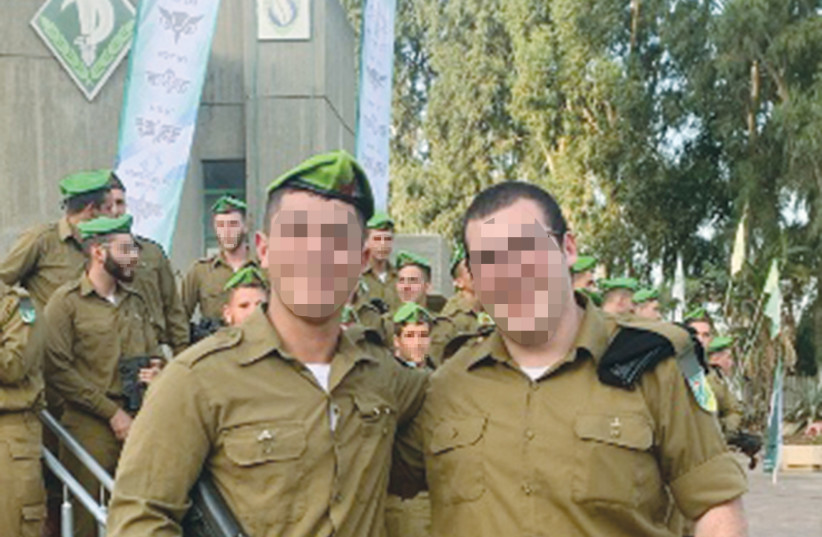Last week, a bill was passed by the Knesset, which at first glance was welcomed wholeheartedly in this house: The combat veterans’ tuition scholarships bill.
It proposed that the government would pay 75% of all combat veterans’ tuition fees, i.e., anyone currently serving in a combat role in the IDF will have three quarters of their college tuition fees paid by the government after the army.
Great news, I thought on reading this with my morning coffee, as the elder of my two sons, both of whom are currently serving, fits the bill. Accordingly, he won’t have to worry so much now about life after the army and academic course fees in particular.
My happiness was short-lived, however, as my thoughts then turned to my youngest son. Unlike his brother, he does not have the necessary physical attributes to enable him to perform a combat role in the army.
As such, the same ‘reward’ is not up for grabs once he (and others like him) completes his service, something which is, one could argue, both discriminatory and unfair.

Although I’m acutely aware of the fact that my younger son is, on the face of it, in a far safer position than his older brother, he is no less dedicated to his service. He has a responsible job in which he deals with sensitive, classified information. He also works long hours, leaving very little time to socialize and do all the things which young people of his age would ordinarily be doing.
Let’s also not forget that the wages of non-combat soldiers are less than those who serve in combat units, although arguably, this is only right and proper given that they aren’t on the front line, risking their lives. To continue this imbalance, however, at the conclusion of their service is unwarranted and unjust.
Like his older brother, he’s given up the best years of his life in order to serve his country - uncomplainingly.
In all the circumstances, it’s simply not fair that when my younger son’s service comes to an end, he won’t be afforded the same benefits as his older brother. Instead, he will have to find a way to finance his own tuition fees should he decide to go on to higher education at that stage.
For many, the bank of mum and dad will not be an option, leaving them with little choice other than to work throughout their studies or take out a loan, which they’ll doubtless be paying off for years to come. Faced with these difficult choices, they may even jettison the chance to continue their studies, thereby losing opportunities which would otherwise have been open to them – and all because they were not able to perform combat roles in the army.
I am aware of the need for such a bill, given the fact that many young school leavers try to avoid army service altogether and out of those who do serve, many would prefer not to be in combat. Enticement is necessary to ensure that these roles are filled with suitable young men and women, but is this really the best way to ensure that there are enough boots on the ground?
What of those who aren’t suited to the not insignificant physical and mental demands placed on combat soldiers, who might still put themselves forward for a role in a combat unit in order to get the scholarship prize at the end of their service? 2 years 8 months, the minimum length of service for both boys and girls in combat, is a very long time if your heart isn’t in it or you’re simply not up to the job.
In my view the bill should be amended to ensure that this injustice is remedied.
But how, you may ask. Where will the money come from?
Whilst I am no expert in matters concerning Israel’s finance budget, I would venture to suggest that one option would be to divert money away from the heavily funded yeshivot, into the pockets of all veteran soldiers who have given up the best years of their lives in service to their country.
As the mother of two sons currently serving in the IDF, I wouldn’t draw a distinction between them in terms of who gives more. Both are making the same sacrifice; both are fully dedicated to their job and work extremely hard.
For this, those veteran soldiers who choose to resume their studies, should be rewarded equally.
The writer is a former lawyer from Manchester, England. She now lives in Netanya, where she spends most of her time writing and enjoying her new life in Israel.
